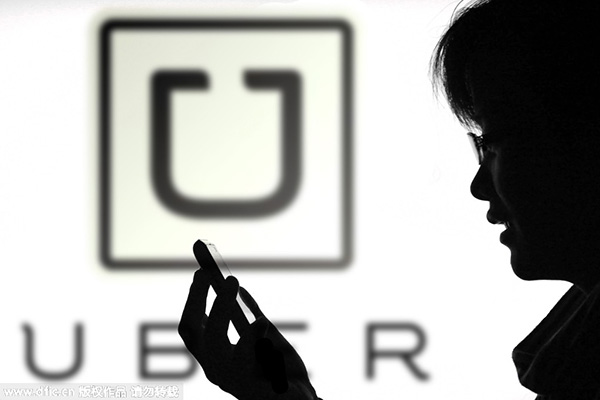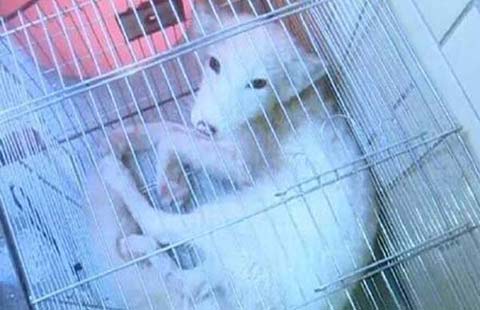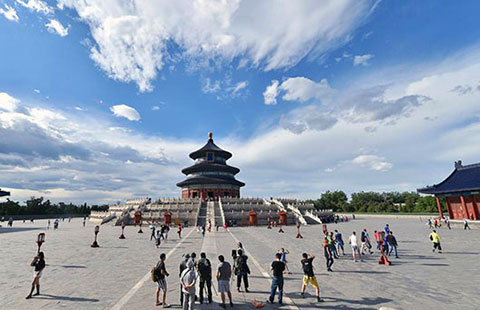Crackdown targets car-hailing services
By WANG ZHENGHUA (China Daily) Updated: 2015-07-27 07:14
 |
|
A pedestrian looks at his smartphone in front of an advertisement for taxi-hailing app Uber in Jinan city, east China's Shandong province, in this Dec 15, 2014 file photo. [Photo/IC] |
Firms such as Didi Kuaidi, Uber are focus of Shanghai's attention
Illegally operated vehicles are being targeted in a city transportation crackdown, including ride-hailing operators such as Didi Kuaidi and Uber, a senior Shanghai official has said.
In an interview with Xinhuanet.com over the weekend, Sun Jianping, director of the Shanghai Municipal Transportation Commission, said the city encourages private car services to complement traditional taxis, but only those that operate legally.
The crackdown comes as other Chinese cities have started tightening restraints on unlicensed operations by popular ride-hailing services.
In a meeting with the leaders of Didi Kuaidi and Uber last week, eight Beijing departments-including municipal transportation regulators, police, tax authorities and Internet regulators-accused them of tax violations, sending junk text messages, being involved in unlicensed for-profit operations, and causing traffic congestion.
In Shanghai, drivers could be fined 10,000 yuan ($1,610) and have their driver's licenses suspended for at least three months if they are caught in illegal operations during the crackdown, and their employers could face 100,000 yuan fines.
Shanghai authorities said ride-hailing drivers are permitted to operate with a vehicle from a car-rental company or if they are employed by taxi or legal ride-hailing companies.
Ride-hailing operators must meet several requirements, including the purchase of traffic accident liability insurance. They must pay income taxes, create a reporting mechanism to handle passenger complaints, and train their drivers, according to the Shanghai traffic authorities.
Chen Yanyan, deputy director of the Beijing University of Technology's College of Transportation, said on Sunday that many issues remain unaddressed for car-hailing services, including the low threshold to become a driver, the lack of tax payments and the industry's lack of operating qualifications.
"But instead of a heavy-handed approach, the government should sit down with car-hailing service operators to find solutions, and encourage the markets to change with the new business mode and services," she said.
A driver working for Didi Kuaidi, surnamed Zou, said on Sunday that the car-hailing companies, not individual drivers, should be blamed for what the government says are illegal services.
He said he has been using his own car and driving part-time for Didi Kuaidi for two weeks, and that he had received no training before taking the job. He said it was easy to enlist as a private car driver, needing only to fill in an online application and upload a photo.
- Delegation salutes Tibet anniversary
- Officials are told to act as anti-graft watchdogs
- Great Wall safeguarded in united action
- Vice minister pledges more efforts to improve air quality
- Beijing’s efforts to control air pollution start to pay off
- China's military committed to reform
- Netizens rip singer over baby photos
- Central govt's growing support for Tibet
- Monument to be built on Tianjin blast site
- China and Russia seal raft of energy deals







